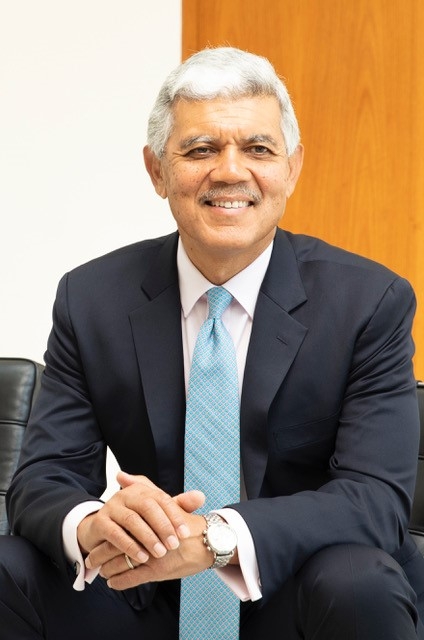You have /5 articles left.
Sign up for a free account or log in.

M. Roy Wilson
Wayne State University
Students cheered last month as the president of Wayne State University, M. Roy Wilson, alongside the mayor of Detroit and the governor of Michigan, announced a free tuition program for students who attend city high schools.
Coming off the heels of the university winning an award from the Association of Public and Land-grant Universities and national praise for improving graduation rates, the event seemed to be another sign of its upward trajectory.
But, for some, it was the “straw that broke the camel’s back.”
Members of the Board of Governors were upset because, save for the board chair, they all received notice of the announcement less than two hours before the public event, and they had no opportunity to discuss the financial implications of the program.
So, on Nov. 6, Michael Busuito, one of the eight board members, moved to fire Wilson or let him resign effective immediately. Four members voted in favor, but the other three refused to vote and walked out. (One board member wasn’t at the meeting.)
Now, Busuito is talking about Wilson’s time as president in the past tense, the four board members who support Wilson are calling the vote illegitimate and students and faculty members alike feel the university is effectively paralyzed.
Divisions and Awards
While divisions among board members have recently come to a head, tensions have been boiling up for months now, starting in December 2018 with the vote to extend Wilson’s contract, which some members felt was rushed.
Efforts to strike a deal between the university’s medical school and the Henry Ford Health System fell apart, the University Physician Group has declared bankruptcy, doctors are suing the university, and the university’s accrediting agency found that a board member was trying to operate the university behind the Wilson’s back -- and that's not even all of the issues.
Meanwhile, Wayne State has won a second award from the APLU. The university’s troubled graduation rates are improving faster than anyone else in the country, and its African American graduation rate has tripled.
Wilson, a medical doctor who has served as a deputy director at the National Institutes of Health and in several administrative positions at medical schools, was hired by Wayne State in 2013. He has been praised for turning the university around after a 2010 report from the Education Trust found that Wayne State had one of the largest racial achievement gaps in the country.
“I know that Roy personally has been deeply engaged” with improving outcomes, said Peter McPherson, president of the land-grant association.
McPherson, who worked with Wilson when he was chair of the association's Commission on Information, Measurement and Analysis and a member of the APLU board, described Wilson as “thoroughly prepared” and as someone who makes good judgments.
Community members, business leaders and former board members have come forward in support of Wilson, who is doubling down and refuses to resign. Wilson declined to be interviewed because “he’s working to bring the board together,” according to a spokeswoman for the university.
A Referendum on Wilson
The state attorney general's office received a complaint about the Nov. 6 vote and is reviewing what happened to determine whether there was a violation of the Open Meetings Act. If there was a violation, the office would make recommendations as to what should be done. There is no deadline for the review, according to a spokeswoman for the office.
In the meantime, after the board sat through two retreats that failed to resolve issues, the only solution seems to be to wait for the November 2020 election, according to Kim Trent, the board's chair.
Both Trent and Sandra Hughes O’Brien, the former chair, will be up for re-election. Trent has sided with Wilson, while O’Brien is one of the members pushing him to resign.
Because board members are elected by Michigan residents, it could turn into a “referendum on President Wilson,” Trent said.
“I think it will be a referendum on what the citizens of Michigan want,” she said. “I think it will be a referendum on whether or not the direction they think the university has been led under this administration is the direction they want to go in.”
But some don’t think that solution is best for the university.
“I think what this has been warped into is a trial of a person, when I don’t think that’s really a useful way to view this kind of problem,” said Stuart Baum, a senior at the university and president of the Student Senate.
Among students, Baum said, there isn’t a consensus on one side or the other. But there is a consensus that they want the fighting to stop.
“From our standpoint, we think the issues are worth looking at but the personal fighting doesn’t help,” he said. “It’s not like one side or another is wholly clean. We have institutional challenges that we need to face together.”
The standstill is also affecting Baum's work in student government. While the Senate isn’t taking sides and is trying to continue its job, there’s a “hesitance” from administrators to tackle larger issues, Baum said.
For example, a proposed amendment to the board’s code that would make student representation more consistent was stalled because the administration said it didn’t want to present more things to the board out of concern that it will lead to more fighting.
From Busuito’s perspective, Wilson is the one who has to go.
“This university can’t start healing until he’s out of Detroit,” he said, adding that it would be selfish for Wilson to continue working as president until the board makeup possibly changes next year.
According to Busuito, Wilson has told him and other board members upon their election who to trust and who not to trust on the board. Busuito says Wilson is the cause of the board’s division.
From the outside, the situation seems like “a couple of kids in the playground having a fight,” said James Finkelstein, a professor emeritus of public policy at George Mason University who researches university presidents.
The difference is what’s at stake: the reputation and future of the university, which affects faculty, staff and students.
“I can’t recall many situations where a board and a president have been more at odds with one another than what you’re seeing play out at Wayne State right now,” Finkelstein said.
Some question why Wilson would stay at the university through all of the scandals. It’s possible it’s financial, Finkelstein said.
If Wilson resigns, his compensation and benefits will end on the effective date, but if he’s fired with or without cause, he could get a severance package, according to his contract. If he’s fired for reasons other than “moral turpitude or malfeasance,” he would receive severance pay and the opportunity to stay on as a faculty member of the School of Medicine.
Either way, the situation now is “problematic,” said Charles Parrish, a professor of political science at the university and president of Wayne State's AAUP-AFT chapter.
“If you have a board that’s at loggerheads, you can’t get anything passed,” he said. “A year without anything getting passed is not good.”
‘A Lot at Stake’
Rich Novak, a senior fellow at the Association of Governing Boards of Universities and Colleges, said it’s bad timing for the university to face a potentially damaged reputation.
“The comeback of Detroit mirrors the comeback of Wayne State, and I think this not only hurts the morale of the campus, but it’s got to also hurt the community,” Novak said. “My recommendation to the board is, there’s a lot at stake here.”
And the division likely won’t just go away with Wilson, he said. Over time, he suspects it will pop back up, no matter who is leading.
This could hurt the university’s ability to recruit quality leaders, he said, adding that while a strong personality might be able to handle a divided board, “I think a lot of people would just shy away from it.”
Novak, like some others following the discord, said it might be time for Gretchen Whitmer, the governor of Michigan, to get involved.
“There’s some political risk for her to do that, but she is the governor,” he said, adding that she could just tell the board as a whole that they need to unite.
The governor’s office did not return requests for comment.
In the end, the board members need to “just think individually and collectively about why are they there,” he said, and set aside their differences.
As far as waiting for the next election goes, Novak said, “A year is a long time to waste.”




